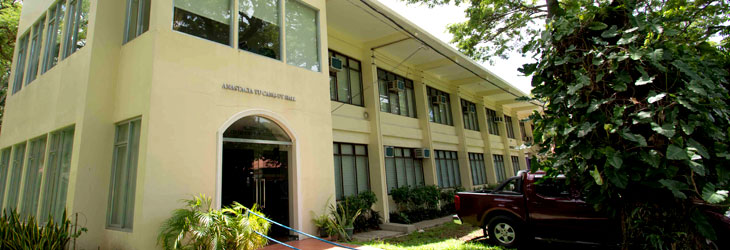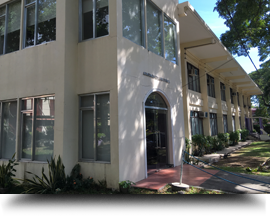
Q & A on the Conduct of Free,
Credible, Honest, Orderly and Peaceful Elections
conducted by the Dr. Jovito R. Salonga Center for Law and Development together with the
Commission on Elections and the Philippine National Police of Negros Oriental
April 11, 2007 at the Silliman University Multi-Purpose Hall
| Q: | What is the authority of the Commission on Elections (COMELEC) over the Philippine National Police in the connection with the May 14, 2007 National and Local Elections? |
| A: | The COMELEC will exercise direct operational supervision and control over the Philippine National Police through the PNP Director General from April 14, 2007 to June 13, 2007.
During the said period, decisions, directives, orders and instructions of the Comelec shall prevail over those emanating from any other authority except the President of the Philippines. This provision is contained in COMELEC Resolution No. 7784 promulgated on December 16, 2006 per authority granted by virtue of its power under the Philippine Constitution, the Omnibus Election Code and Republic Act 6975, he said. As provided under RA 6975, “The city and municipal mayors shall exercise operational supervision and control over the PNP units in their respective jurisdictions except during the 30 days before and 30 days following any national, local or barangay elections when the local police force shall be under the supervision and control of the COMELEC.” “The term ‘operational supervision and control’ shall mean the power to direct, superintend, oversee and inspect the police units or forces. It shall include the power to employ and deploy units or elements of the PNP, through the station commander, to ensure public safety and effective maintenance of peace and order within the locality. For this purpose, the term ‘employ and deploy’ shall mean as follows: “Employ’ refers to the utilization of units or elements of the PNP for purposes of protection of lives and properties, enforcement of laws, maintenance of peace and order, prevention of crimes, arrest of criminal offenders and bringing the offenders to justice, and ensuring public safety, particularly in the suppression of disorders, riots, lawless violence, rebellious or seditious conspiracy, insurgency, subversion or other related activities.” “Deploy’ shall mean the orderly and organized physical movement of elements or units of the PNP within the province, city or municipality for purposes of employment as herein defined.” |
| Q: | How can illiterate and disabled voters exercise the right to vote? |
| A: | Under Section 196 of Batas Pambansa Blg. 881 otherwise known as the Omnibus Election Code, “A voter who is illiterate or physically unable to prepare the ballot by himself may be assisted in the preparation of his ballot by a relative, by affinity or consanguinity within the fourth civil degree or if he has none, by any person of his confidence who belong to the same household or any member of the board of election inspectors, except the two party members: Provided, That no voter shall be allowed to vote as illiterate or physically disabled unless it is so indicated in his registration record: Provided, further, That in no case shall an assistor assist more than three times except the non-party members of the board of election inspectors. The person thus chosen shall prepare the ballot for the illiterate or disabled voter inside the voting booth. The person assisting shall bind himself in a formal document under oath to fill out the ballot strictly in accordance with the instructions of the voter and not to reveal the contents of the ballot prepared by him. Violation of this provision shall constitute an election offense.” |
| Q: | What acts are considered as election offense? |
| A: | 1. Vote-buying and vote-selling 2. Conspiracy to bribe voters 3. Wagering upon result of election 4. Coercion of subordinates 5. Threats, intimidation, terrorism, use of fraudulent device or other forms of coercion 6. Coercion of election officials and employees 7. Appointment of new employees, creation of new position, promotion, or giving salary increases 8. Transfer of officers and employees in the civil service 9. Intervention of public officers and employees 10. Undue influence 11. Unlawful electioneering 12. Prohibition against dismissal of employees, laborers, or tenants 13. Appointment or use of special policemen, special agents, confidential agents of the like 14. Illegal release of prisoners before and after election 15. Use of public funds, money deposited in trust, equipment, facilities owned or controlled by the government for an election campaign 16. Deadly weapons 17. Carrying firearms outside residence or place of business 18. Use of armored land, water or air craft 19. Wearing of uniforms and bearing arms 20. Policemen and provincial guards acting as bodyguards or security guards 21. Organization or maintenance of reaction forces, strike forces, or other similar forces 22. Prohibition against release, disbursement or expenditure of public funds 23. Prohibition against construction of public works, delivery of materials for public works and issuance of treasury warrants and similar devices 24. Suspension of elective provincial, city, municipal or barangay officer*To read the complete list of election offenses, see Art. XXII, Sec. 261, Batas Pambansa Blg. 881 |
| Q: | What is the authority of the COMELEC over election offenses? |
| A: | As provided under Section 1 of the COMELEC Rules of Procedure on its Authority to Prosecute Election Offenses, “The Commission shall have the exclusive power to conduct preliminary investigation of all election offenses punishable under the election laws and to prosecute the same, except as may otherwise be provided by law.”
Under Section thereof on the Continuing Delegation of Authority to Other Prosecution Arms of the Government, it provides “The Chief State Prosecutor, all Provincial and City Fiscals, and/or their respective assistants are hereby given continuing authority, as deputies of the Commission, to conduct preliminary investigation of complaints involving election offenses under the election laws which may be filed directly with them, or which may be indorsed to them by the Commission or its duly authorized representatives and to prosecute the same. Such authority may be revoked or withdrawn any time by the Commission whenever in its judgment such revocation or withdrawal is necessary to protect the integrity of the Commission, promote the common good, or when it believes that successful prosecution of the case can be done by the Commission.” |
| Q: | Where should complaints on election offenses be filed? |
| A: | Under Section 4 of the COMELEC Rules of Procedure, “(b) The complaint shall be filed with the Law Department of the Commission; or with the offices of the Election Registrars, Provincial Election Supervisors or Regional Election Directors, or the State Prosecutor, Provincial Fiscal or City Fiscal. If filed with any of the latter three (3) officials, investigation thereof may be delegated to any of their assistants.”
During the said Inter-Agency Integration and Coordination Workshop, Negros Oriental COMELEC Provincial Supervisor Atty. Manuel Advincula pointed out under the COMELEC Rules of Procedure that “Even if there is a resolution, it is for the prosecutor to conduct the inquest, file charges, and prosecute election violations. But if there is no inquest, the charges should be filed in the fiscal or in the COMELEC law department.” |

